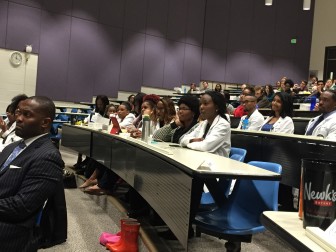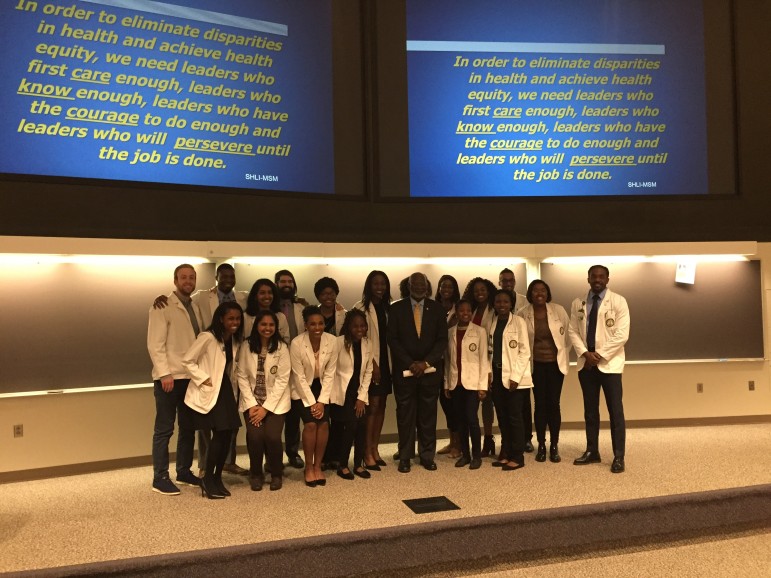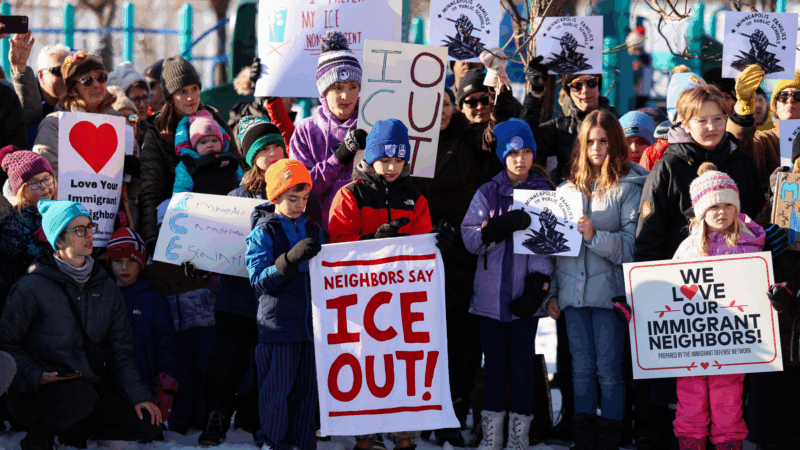Former Surgeon General Satcher to UAB: Take Risks
Former U.S. Surgeon General David Satcher gave a talk at UAB Wednesday about racial and economic disparities in health care and in the opportunities available to minority providers. He spoke to more than 100 medical students and other professionals at the invitation of the Birmingham branch of the Student National Medical Association.
With Black History Month as a backdrop, Satcher pleaded for bold leadership in medicine and explained how his own near-death experience prompted him to take risks over his long career. He said things have improved since blacks couldn’t be admitted to hospitals — let alone be the doctors doing the admitting — but he told up-and-coming doctors that they still need to sacrifice.
“You’ve got to find something that you stand for, that you believe in, and that you’re willing to take risks for,” he said. “I quote Martin Luther King: ‘until a person finds something for which he or she is willing to die, you’re not fit to live.’”
He said that’s true whether you’re treating underserved populations or advocating for better healthcare in the political arena, which affects any nation’s health. He said that’s why he founded the Satcher Health Leadership Institute in 2006.
Satcher has spent his career working for people who aren’t well-served by the health care system. His motivation goes back to 1940’s Anniston, where as a toddler he almost died of whooping cough and pneumonia. But a black doctor came to his parents’ farm.
“I wouldn’t wish on anybody a near-death experience like I had. But I do know whatever happens to you can be the basis for great things in the future. He saved my life, and as a result, I made a commitment to him, but [also] to myself and others.”
Satcher has also worked to destigmatize mental illness and addiction.
RFK Jr. cast doubt on a key vaccine. This country can’t wait to get it
The U.S. is cutting the Hepatitis B vaccine from its recommended list. But here's a place where the medical establishment — and a rapper — are eager to obtain it.
U.S. Figure Skating Championships will determine who’s going to the Olympics
This week's competition in St. Louis will skaters tickets to the Milan-Cortina games in February
The CDC just sidelined these childhood vaccines. Here’s what they prevent
The childhood vaccines that the CDC is dropping from the recommended scheduled have successfully beat back illness and death in children from rotavirus, hepatitis and other pathogens.
Federal agents shoot 2 in Portland after an ICE agent killed a woman in Minneapolis
Officials are calling for transparent investigations into controversial shootings involving federal agents. Here's a recap of the latest developments in Portland and Minneapolis.
Yemen’s Southern Transitional Council says it will dissolve after its head fled to UAE
Yemen's Southern Transitional Council and its institutions will be dismantled after weeks of unrest in southern areas and a day after its leader fled to the United Arab Emirates.
National Park Service will void passes with stickers over Trump’s face
The use of an image of Trump on the 2026 pass — rather than the usual picture of nature — has sparked a backlash, sticker protests, and a lawsuit from a conservation group.








